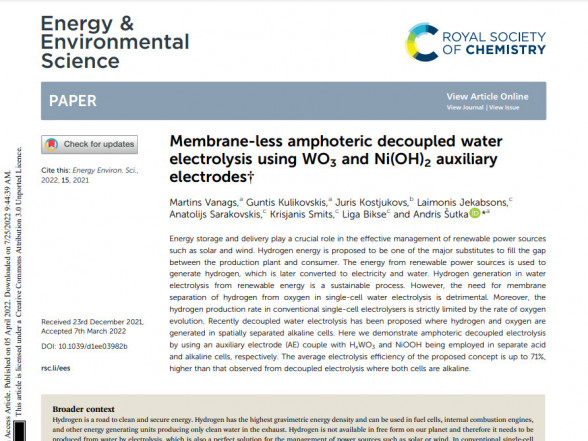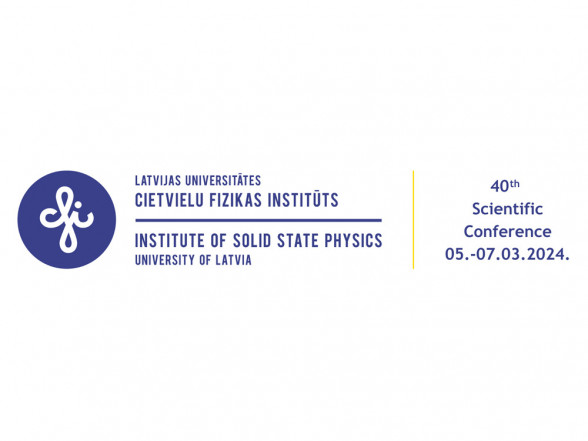Scientific journal Energy & Environmental Science (IF 39.714, SNIP 4.922) in issue 5, 2022 has published an article “Membrane-less amphoteric decoupled water electrolysis using WO3 and Ni(OH)2 auxiliary electrodes “ (DOI 10.1039/d1ee03982b). The co-authors of the article represent the ISSP UL (Laimonis Jēkabsons, Anatolijs Šarakovskis, Krišjānis Šmits, Līga Bikše), Institute of Materials and Surface Engineering, Riga Technical University (Mārtiņš Vanags, Guntis Kuļikovskis, Andris Šutka), and Department of Physical Chemistry, University of Latvia (Juris Kostjukovs). In the article, researchers offer amphoteric decoupled electrolysis with 71% higher electrolysis efficiency.
Energy storage and delivery play a crucial role in the effective management of renewable power sources such as solar and wind. Hydrogen energy is proposed to be one of the major substitutes to fill the gap between the production plant and consumer. The energy from renewable power sources is used to generate hydrogen, which is later converted to electricity and water. Hydrogen generation in water electrolysis from renewable energy is a sustainable process. However, the need for membrane separation of hydrogen from oxygen in single-cell water electrolysis is detrimental. Moreover, the hydrogen production rate in conventional single-cell electrolysers is strictly limited by the rate of oxygen evolution. Recently decoupled water electrolysis has been proposed where hydrogen and oxygen are generated in spatially separated alkaline cells. In the article, researchers demonstrate amphoteric decoupled electrolysis by using an auxiliary electrode (AE) couple with HxWO3 and NiOOH being employed in separate acid and alkaline cells, respectively. The average electrolysis efficiency of the proposed concept is up to 71%, higher than that observed from decoupled electrolysis where both cells are alkaline.
Energy & Environmental Science is an international journal dedicated to publishing exceptionally important and high-quality, agenda-setting research tackling the key global and societal challenges of ensuring the provision of energy and protecting our environment for the future. It is a journal linking all aspects of the chemical, physical and biotechnological sciences relating to energy conversion and storage, alternative fuel technologies, and environmental science.



